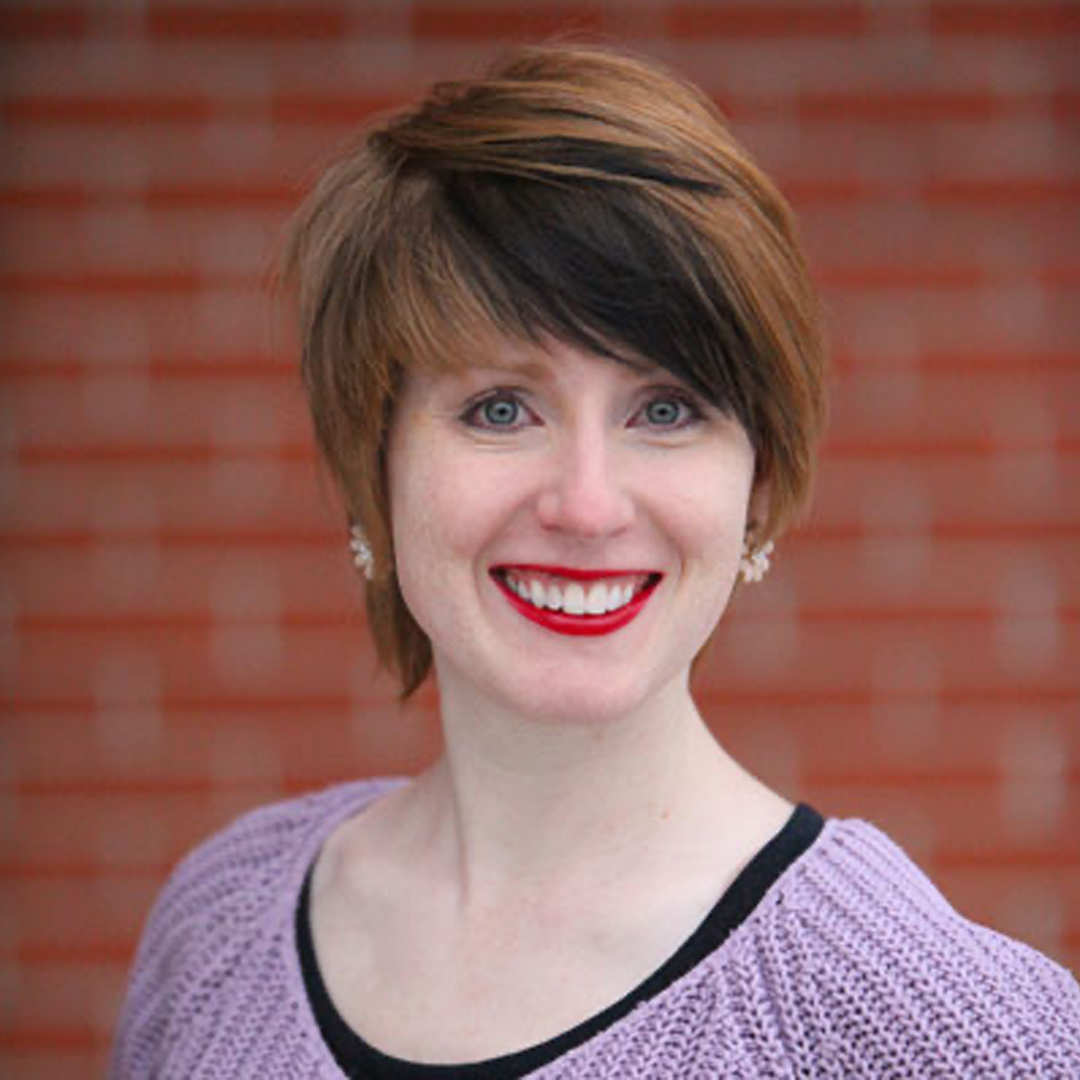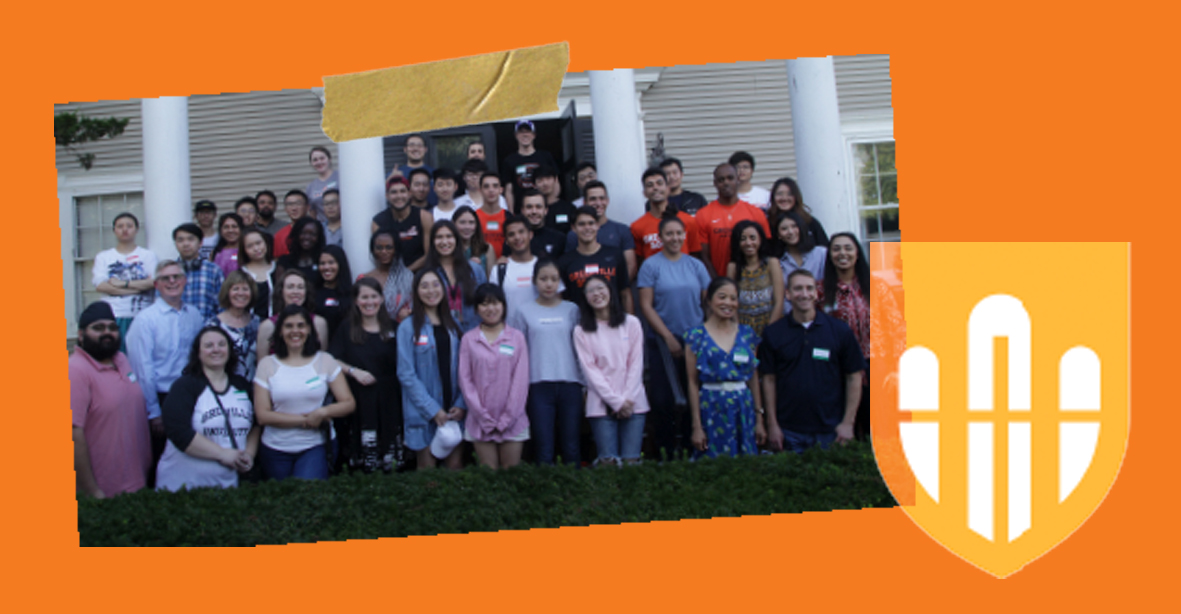
Rachel Heston-Davis
Rachel Heston-Davis is the manager of communications for the Office of Advancement at Greenville University. She has worked as a journalist and freelance writer in the St. Louis area and previously taught English at GU.
by Rachel Heston-Davis
Across the United States, fewer international students are enrolling in colleges and universities. The Association of International Educators (NAFSA) reported a 10 percent drop in international student enrollment at the college level over a two-year span (fmchr.ch/nafsa).
Many factors contribute — fewer visa approvals, stricter scrutiny on immigration, changing attitudes toward immigrants, and a lowered confidence overseas of America’s safety.
Meanwhile, Greenville University celebrated its largest incoming class of international students last fall: 60 new students arrived from 23 countries outside of the U.S., bringing GU’s total enrollment of international students to 100, a record for the university in Greenville, Illinois. Some newcomers entered as traditional undergraduates and some as participants of GU’s University Pathways (UP) program, a one-year noncredit program that prepares international students for university-level education in the U.S. Each year, upon completion of the program, many UP students choose Greenville University — a member of the Association of Free Methodist Educational Institutions — as their school for undergraduate study.
What caused GU to double its international enrollment at a time when other universities struggle to maintain theirs? Personalized care and support for each student, said GU’s Dean of International Affairs Geet Vanaik.
Vanaik, who formerly chaired the International Education Council of St. Louis, assumed responsibility of GU’s Office of International Affairs in summer 2018, and she was determined to help GU beat the downward trend.
Clearing First Hurdles
Vanaik knew that obstacles to international enrollment start early in a student’s journey.
“One of the biggest challenges [for international students] is the admissions process. That’s very daunting,” she said, and students don’t want to tackle it alone. Somehow, her office would have to come alongside each prospective student from day one.
Vanaik made GU’s international admissions process more user-friendly. It now includes conversations over Skype between interested students and her staff. Students ask questions, develop relationships, and receive personal guidance through the admission and immigration process. Staff members help students clarify their reasons for coming to the U.S. and verbalize how they will benefit from the experience. Clear narratives increase the likelihood of visa approval, one of the biggest obstacles to international study in the U.S.
Personalized support puts families at ease about sending their students abroad.
“Safety comes with relationships,” Vanaik pointed out. “If I know you, then I know where I’m sending my child.” Detailed information about GU programs, along with videos and PDFs introducing campus, allow students to picture their potential college life in the U.S.
But drawing students is just the first step. A successful international program must retain them. That’s why GU’s personalized care and support kick into overdrive once students reach campus.
Tailor-Made Support
While international students face challenges that typical freshmen face, they deal with a host of other challenges too.
Language barriers introduce confusion during enrollment and can hinder campus navigation.
The lack of a driver’s license prevents them from shopping for dorm supplies or exploring the area.
American cafeteria food looks and tastes unfamiliar.
Opening a bank account can prove confusing.
Even securing a part-time job requires an hour-long drive to the nearest Social Security facility.
Throw in culture shock and homesickness, and the obstacles pile up.
Vanaik deliberately structured the Office of International Affairs around these challenges. She moved the office to a central location on campus for easy access. She defined staff roles and responsibilities in a way that actively supports international students on campus. Program coordinator Lisa Gines and student coordinator Alice Trinidad, for example, organize shopping trips, visits to St. Louis’s international food market, assistance with bank account and cell phone setup, transportation to off-campus appointments, and trips to the Social Security office.
Meanwhile, International Student Advisor Gret Tindall helps UP students enroll, keeps their immigration paperwork up-to-date, and mans the office during business hours to field questions. Ryan Scott, international admissions counselor and the first GU representative students meet over Skype, assists with orientation so international students see a familiar face upon arrival.
Regardless of job title, all international office staff members share one duty in common; being available to help. International students enjoy 24/7 access to staff through text, email or chat.
“There is never too small of a concern [to contact us with],” Scott said. Something that seems small to him — a lost document, unintelligible washing machine instructions, the need for cold medicine — means the world to a student struggling with homesickness and language barriers. Staff members assist students with every problem imaginable and cross-train one another on job functions so illnesses or vacations won’t interrupt their services. Every member of the team describes collaboration as vital.
“No silos here,” Gines said. “We’re all working toward the same goal.”
Graduate Assistant Liang Ge agreed, “It would be too much for anyone to cover alone. Our work overlaps so much; it would be foolish to not get each other involved.”
“Being a team member is huge in our department,” Scott said. “We are responsible for each other’s success, as well as the students’ success.”
Curriculum for Success
The university curriculum sets students up for success right away. Its UNIV 101 course for international students covers campus rules and expectations, maintaining immigration status, culture shock, the U.S. academic environment, an introduction to American holidays, and other topics international students need. A study program rewards students for attending study evenings at the library, simultaneously promoting homework and socialization. Regular meetings with staff provide an organized forum for students to voice questions and concerns, and international student meetings allow participants to share information, frustrations and triumphs with each other.
Staff also monitor problems — a dipping GPA, perhaps, or unfavorable reports from a dorm resident assistant — and intervene early with an offer of help. Whether it’s tutoring, emotional support, or something as simple as needing a new laptop, Vanaik and her team aim to head problems off before students get overwhelmed.
The genuine care students experience makes a difference, and makes students that much more likely to choose Greenville University for their undergraduate studies.
Vanaik is quick to share credit with other offices for making a positive international student experience possible. Every administrative department partnered with her to make her vision for the Office of International Affairs a reality:
- The GU facilities team renovated the new office space and freshened up the UP building.
- Registrar staff worked with Vanaik to create simpler enrollment processes.
- Student accounts worked to create smooth billing processes for new students.
- Fresh Ideas staff in the dining commons accommodated international tastes.
- Faculty reached out to ask Vanaik how best to support her students.
The list goes on.
“Every department has come together [to help us]. We’re a campus that says ‘yes,’” Vanaik said. “There’s no way we could make any progress without the support from the rest of campus,” Ge said.
Vanaik believes this intentional love for students will allow GU’s international program to grow, regardless of national trends. She foresees 2019’s triumph as the start of a new era in GU’s Office of International Affairs.
“This is a campus that’s excited about international students,” she said.
That excitement shows.+

Rachel Heston-Davis
Rachel Heston-Davis is the manager of communications for the Office of Advancement at Greenville University. She has worked as a journalist and freelance writer in the St. Louis area and previously taught English at GU.









